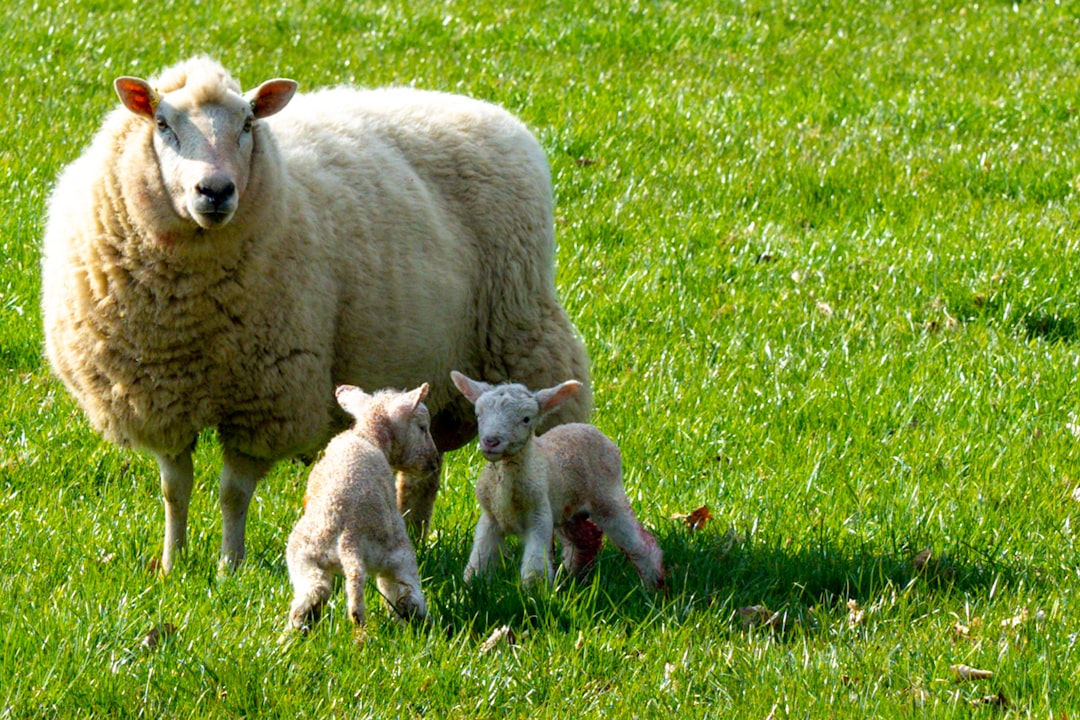This past Sunday, our pastor brought up the passage in John 21 where Jesus restores Peter after Peter denied Jesus three times on the day Jesus was on trial to be crucified.
15 When they had finished eating, Jesus said to Simon Peter, “Simon son of John, do you love me more than these?”
“Yes, Lord,” he said, “you know that I love you.”
Jesus said, “Feed my lambs.”
16 Again Jesus said, “Simon son of John, do you love me?”
He answered, “Yes, Lord, you know that I love you.”
Jesus said, “Take care of my sheep.”
17 The third time he said to him, “Simon son of John, do you love me?”
Peter was hurt because Jesus asked him the third time, “Do you love me?” He said, “Lord, you know all things; you know that I love you.”
Jesus said, “Feed my sheep.”
I’ve always been fond of this story. When I was little, during lambing season, my dad would take turns going out every couple hours overnight to check if any lambs had been born. As you can imagine, this gets exhausting after a while (especially in January when it is cold and snowy!). So sometimes, Dad would come in and say, “Karen, do you love me?” And I’d say, “Yes!” And he’s say, very tiredly, “Check my sheep.” We’d always have a good giggle over that. So when I read this story in John 21, I always think of my dad.

The other thing that comes to mind when I read this story is the use of the word “love.” In English, we don’t really see the importance of the word “love” used throughout. However, Peter seems to be hurt the third time Jesus asks if Peter loves him, so it makes us investigate a bit further. For those of you who don’t know, there are four Greek words for love:
Phileo – love between close friends
Eros – love found in romantic relationships
Storge – love between family members
Agape – unconditional, sacrificial love
*For a more in-depth look at these words, see this article from Centered on Christ.
When I’ve heard sermons or lessons on this passage, I always hear the teacher discuss the word for love that Jesus uses. The first two times, Jesus uses the word “agape.” But the third time, Jesus uses the word “phileo.” That’s why Peter was hurt the third time Jesus asked him “Do you love me?” Jesus downgraded his word for love. But you know what I’ve never heard? The word for love that Peter uses.
Recently, I decided to start learning Greek. So I’m a little more aware of Greek words and their meanings these days. I’ve taken to using the Blue Letter Bible app to read the English Bible and the Greek Bible side-by-side. So I went to investigate. What word for love does Peter use?
What I found surprised me – and was very convicting. Here’s how the conversation goes:
First question:
Jesus: “Simon son of John, do you love (agape) me more than these?”
Peter: “Yes, Lord, you know that I love (phileo) you.”
Jesus: “Feed my lambs.”
Second question:
Jesus: “Simon son of John, do you love (agape) me?”
Peter: “Yes, Lord, you know that I love (phileo) you.”
Jesus: “Take care of my sheep.”
Third question:
Jesus: “Simon son of John, do you love (phileo) me?”
Peter (hurt): “Lord, you know all things; you know that I love (phileo) you.”
Jesus: “Feed my sheep.”
Interesting, right? Peter uses the word “phileo” all three times. Yet somehow he’s still hurt when Jesus begins to echo Peter’s use of the word love. It’s as if Jesus is saying, “Is that all? You only love me like a friend? You don’t have that same unconditional, sacrificial love that I have for you?” You can almost feel Jesus’ disappointment or sadness. Yet despite Peter’s lack of conviction in this story, we know that Peter goes on to become one of the greatest apostles.
I don’t know about you, but this story becomes a little more real when I have a deeper understanding of the Greek words used. It makes me consider: How do I love Jesus? Do I love him with everything I am, ready to do whatever it takes to follow him? Or do I just see him as a friend that can be tossed aside if we start to have differences? I pray that God will help me love him and love others with God’s love, agape love.
What about you? How do YOU love Jesus?


